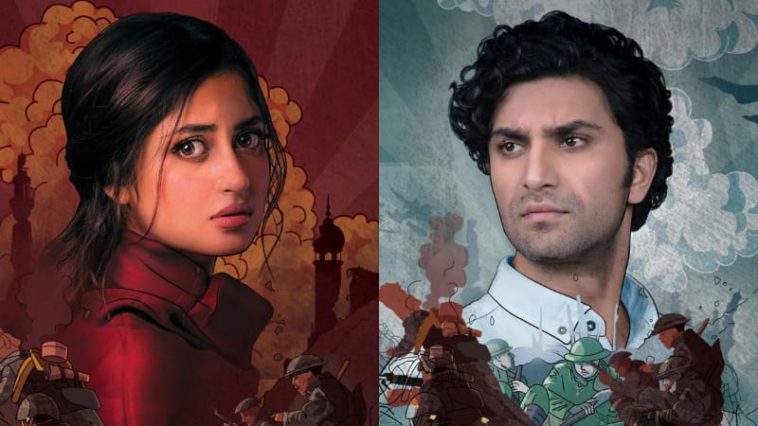Projects that are hyped as ‘hatke’ often turn out to be some of the most difficult — and disappointing pieces of work to review. Yet there are some exceptions that sincerely attempt to live up to their billing and end up exceeding expectations by pulling up a creative sleight of hand, deftly crafting something unique out of what otherwise might be mundane and banal.
Director Haseeb Hassan’s latest project, Dhoop Ki Deewar, thankfully belongs to the latter category and is an earnest attempt at breaking new ground. To start with, the show is a web series with the sensibilities of a Pakistan drama serial. It is also an India-Pakistan cross-border love story that casts away most cliches that come with this sub-genre: Any needless jingoism and melodrama is done away with, and instead, the intention here is, as one understands, to show the mirror to people on both sides of the border.
The question remains: does all of this also translate to an engaging and rewarding viewing experience?
Let’s take a look at what’s on offer here. On the surface, the show is a star-crossed love saga that revolves around its two protagonists, Vishal (Ahad Raza Mir) and Sara (Sajal Aly), who connect, bond and then fall in love after their fathers fatally encounter each other on the battlefield. As the two characters and their families deal with grief and come to terms with their challenging circumstances, the show gradually peels away the narrative of ‘the other’ as the two sides are shown to suffer from a similar set of difficulties following the demise of the man of the house — and importantly, both learn to empathize with the other as time passes by. The women of the family, i.e. Vishal and Sara’s mothers, become each other’s support systems, and all of this happens in a gradual, realistic manner for which the writer must be given credit. Eventually, another man, Junaid (Raza Talish) enters the picture as Sara’s potential groom, and following the Pulwama incident, fate once again ties the paths of Vishal, Junaid and Sara together in a cruel way.
All of this happens through the course of 18 episodes, and notably, the series goes much beyond banal romance and depiction of grief as issues such as varied as social difficulties faced by women, mental health issues of children, misogyny, casteism, and elder mistreatment are incorporated into the plot — issues that are common to both Indians and Pakistanis indeed. While this social commentary is laudable, it at times slackened the pace of the narrative and could have been better woven into the proceedings. Perhaps, focusing on a few select issues rather than pushing in a whole gamut onto the script would have aided in the narrative being tauter. Also, some characters such as Hira Tareen’s were overly shrill and stood out against the more staid tone of the show.
Having said that, the performances were through and through admirable, and credit has to be given to Hassan for his solid directorial grasp over the show. Zaib Rehman, Samia Mumtaz, Manzar Sehbai, and indeed Sajal Aly, pitched in solid A-performances while the rest fared well too. Ahad Raza Mir has come a long way and did well in grasping the minutiae of his character, which includes the Hindi vernacular. Dhoop Ki Deewar is a tearjerker and Aly’s work, especially in the concluding reels, is amongst her best so far.
There are glimpses of Haseeb Hassan’s earlier work in Parwaaz Hai Junoon here, and without giving the climax away, it would be fair to say a similar plot device has been used to elicit an emotional response from her audience. Pacing was also an area where the show needed some work. Its length at 18 episodes seemed to be too long and the proceedings could have been easily wrapped in 10 or 11 parts. When the show’s narrative did develop momentum, such as in the initial reels, one sub-plot or another stepped in the way (resolved later) to slacken the proceedings. A timespan of over two years flies by in the last two episodes, which definitely seemed rushed. Also, there were some editing gaffes — the incorporation of military video footage towards the end could also have been handled better.
To sum up, Dhoop Ki Deewar is mandatory viewing for those who enjoy watching shows with substance. While it may not be perfect, it is an important step towards local filmmakers’ endeavors in stepping into the web series arena. The series boasts of excellent performances and some thought-provoking, meaningful writing that stands against the cacophony that is reported otherwise about the two countries. It just might force you to reconsider your views about that ‘other.’



Comments
0 comments